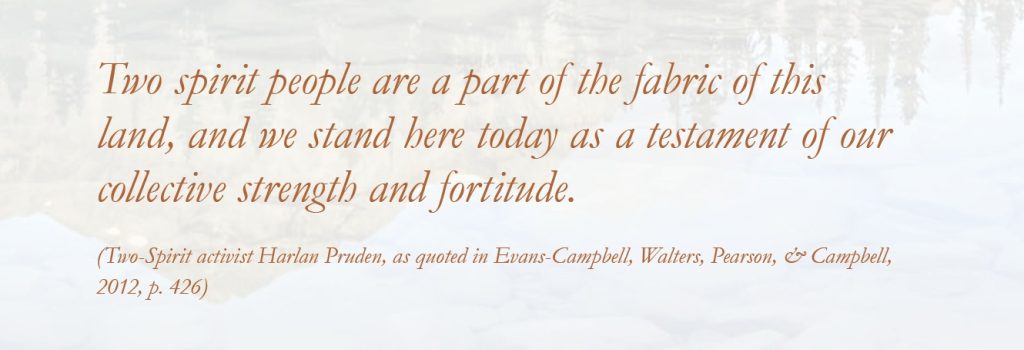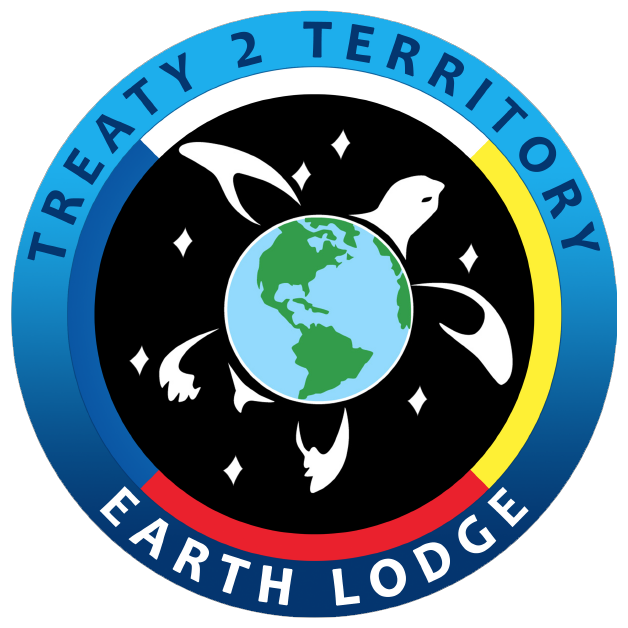Treaty 2- Two-spirit is a term that includes a broad rand of sexual and gender identities of First Nations people across Turtle Island. Some people use the term to refer specifically to the cultural roles of individuals who embody/represent both female and male spirits. Two-spirit is commonly used to describe First Nations people who identify as lesbian, gay, bisexual, transgender or queer (LGBTQ). Roughly two-thirds of the 200+ First Nations languages contain terms to describe individuals who were neither men nor women. Many of these are difficult to translate into English because they describe identities which are about one’s spiritual and cultural roles.

The term ‘Two-Spirit was introduced by Elder Myra Laramee in 1994 at the Annual Native North American Gay and Lesbian Gathering in Winnipeg. This Indigenously-defined pan-Native North American term refers to the diversity of Indigenous LGBTQ identities, as well as, culturally-specific non-binary gender identities. Two-spirit is a term that reflects traditional Indigenous gender diversity, including the fluid nature of gender and sexual identity and its connection with spirituality and traditional worldviews.
Within many First Nations teachings, having intimate relationships with someone of the same sex or gender was not viewed as deviant. It was their understandings of gender and sexuality placed an individual’s role within their social structure, as well as within an individual’s physical sex and sexual preference. Gender roles and sexual identities were based on multiple societal factors and reflected Indigenous cultural, political and spiritual worldviews. It’s for this reason that Indigenous peoples are uniformly accepting of gender and sexual fluidity and respect and honour Two-Spirit people.
The diversity and acceptance of those who identify as two-spirit is a sharp contrast to current views, acceptance and understanding of many in the western world. And despite widespread measures to enforce Western gender and sexual norms, Indigenous people have continued to live and embody non-binary expressions of gender and sexuality and to resist assimilative strategies. Today, the reclamation of Two-Spirit roles and identities is evident within our Nations across Turtle Island.
Submitted by Renée McGurry, Earth Lodge Development
lodge.fnt2t.com
Various sources: Free Press articles, Canadian Encyclopedia
